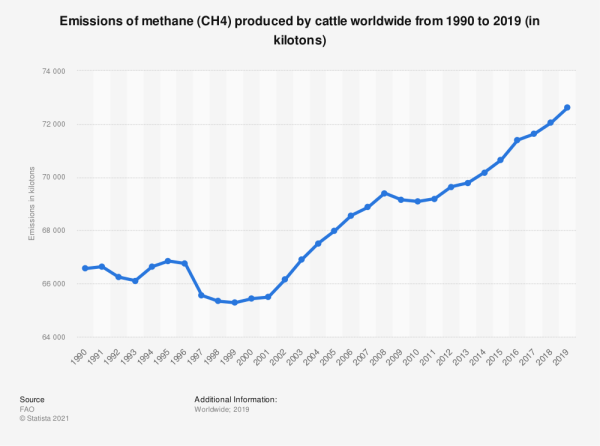
The latest UNEP Emissions Gap Report (2021) and IPCC sixth assessment report (2022) show that it is possible to limit the global temperature rise to 2.2°C if the net-zero emissions pledges are fully implemented and, thus, they call for immediate action both from the production and consumption-side. The projections show that policy-makers, businesses and society need to take effective measures to mitigate greenhouse gas (GHG) emissions and support sustainable development for all (IPCC, 2022), specifically in fossil fuel use, waste generation and agriculture which are priority areas for action (UNEP, 2011). Although governments and businesses play an important role in supporting sustainable development to ensure the planet’s health and human well-being, we, as individuals, also need to adopt measures considering whether the impact of our actions are compatible with the planetary boundaries.
But what might incite individuals to take action, by themselves? Interviews conducted in the context of the EU1.5° Lifestyles project show that important personal norms inducing the adoption of low-carbon lifestyles at the individual level are self-awareness and responsibility. In other words, understanding the consequences of your lifestyle choices and the possible problems you might cause, is a crucial first step, and accepting responsibility for these problems by taking adequate measures to solve them, i.e. adjusting your consumption, is a key second step towards sustainable lifestyles. Considering the UNEP (2021) report, we, as consumers, can adopt some measures in priority areas such as energy consumption – the electricity consumption in our homes or the way we move in our daily lives. Nutrition is also one of the greatest contributors to GHG emission and hence generates significant climate change issues, e.g. livestock farming is responsible for the 14.5 % of the anthropogenic GHG emission (7.1 Gigatonnes of CO2-equiv per year; FAO, 2013), including methane (CH4).2

Personal motivations are also quite important to adopt low-carbon lifestyles. People, mostly, opt for sustainable lifestyles, e.g. switching to a vegan diet, due to their concerns about social justice, the value of the environment, animal rights, and respect for the rights of other human beings, including future generations . Furthermore, personal concepts of the human-nature relation is also quite an important influence on individuals’ willingness to take necessary actions to protect our planet Earth. While watching documentaries on the climate emergency, for instance, could help raise awareness on the issue, being in direct contact with nature may matter more and allow for a more complete understanding of the consequences of our choices.
Opting for low carbon lifestyle options, such as switching to a vegan diet or to the use of public transport for commuting, may also be a challenging task for individuals, despite such personal motivations. If social norms favor a high carbon lifestyle, opting for a low carbon one may be viewed as a challenge or criticism by others, including friends and family. Similarly, low carbon lifestyle options are sometimes not easily accessible. For example, vegans – in Spain – often face challenges when they decide to have lunch or dinner outside, due to a lack of vegan options on the menu or a lack of transparency with respect to product origins and characteristics.

However, there are also facilitating factors that can support an individual’s transition to a more sustainable lifestyle. For instance, friends who opt for a similar sustainable lifestyle can be supportive since they are on the same page and face the same challenges. A certain type of personality, specifically being independent and standing on your own feet in financial terms, can also be important enablers allowing individuals to face and overcome these challenges.
Most fundamentally, while individuals may have to make certain sacrifices and experience inconveniences, they are likely to feel happier and more comfortable if their lifestyles resonate with their personal beliefs and thoughts. Thus, individuals adopting a low carbon lifestyle report that they feel they are doing something really good with their life because they protect the planet, nature and the animals they love. This gives them greater peace of mind, since they do not have to make the psychological effort to convince themselves that there are no contradictions between their lifestyles and their personal views. Last but not least, following a plant-based diet in a more conscious way, consuming fresh and local food products, including fruits and vegetables, also tends to be associated with positive health effects.
Dr. Nadin Ozcelik, Universidade da Coruña
1 This piece is based on an interview conducted in the context of the EU1.5°Lifestyles project, and thus draws on the personal experiences of the interviewee.
2 Livestock farming (industrial) also has other environmental impacts, such as, the macro-farms seem to contaminate the groundwater, since the slurry could be discharged into groundwater through the soil.
References
- Gerber, P.J., Steinfeld, H., Henderson, B., Mottet, A., Opio, C., Dijkman, J., Falcucci, A. & Tempio, G. 2013. Tackling climate change through livestock – A global assessment of emissions and mitigation opportunities. Food and Agriculture Organization of the United Nations (FAO), Rome.
- IPCC, 2022: Climate Change 2022: Impacts, Adaptation and Vulnerability. Contribution of Working Group II to the Sixth Assessment Report of the Intergovernmental Panel on Climate Change [H.-O. Pörtner, D.C. Roberts, M. Tignor, E.S. Poloczanska, K. Mintenbeck, A. Alegría, M. Craig, S. Langsdorf, S. Löschke, V. Möller, A. Okem, B. Rama (eds.)]. Cambridge University Press. Cambridge University Press, Cambridge, UK and New York, NY, USA, 3056 pp., doi:10.1017/9781009325844
- Statista (2021). Emissions of methane (CH4) produced by cattle worldwide from 1990 to 2019. Available at: https://www-statista-com.accedys.udc.es/statistics/1261318/cattle-methane-emissions-worldwide/
- United Nations Environment Programme (2021). Emissions Gap Report 2021: The Heat Is On – A World of Climate Promises Not Yet Delivered. Nairobi

